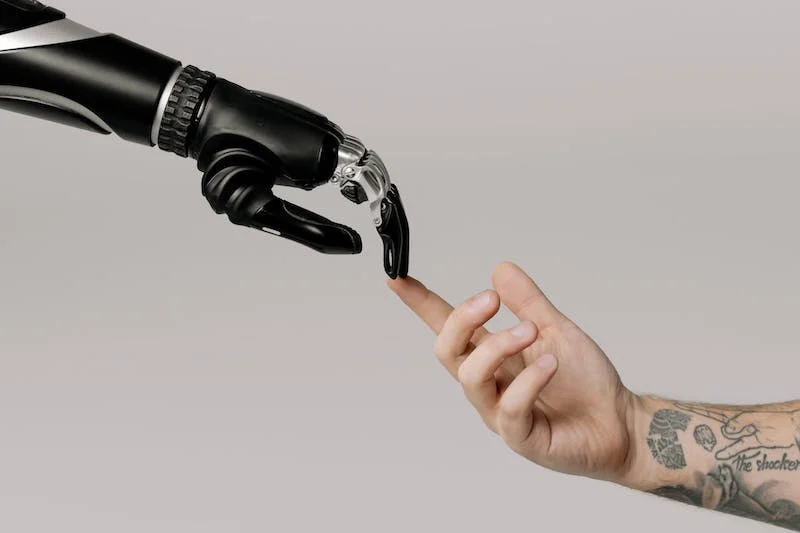Contents
Impact of AI(Artificial Intelligence) on Healthcare
The impact of artificial intelligence (AI) on healthcare has been profound, revolutionizing various aspects of the industry. Here are some of the key ways in which AI has influenced healthcare:
- Medical Imaging:
- Radiology: AI(Artificial Intelligence)-powered image analysis helps radiologists detect and diagnose diseases like cancer, fractures, and abnormalities more accurately and quickly by highlighting potential issues.
- Pathology: AI(Artificial Intelligence) aids pathologists in analyzing tissue samples and identifying diseases or abnormalities, improving diagnostic accuracy.
- Drug Discovery and Development:
- AI(Artificial Intelligence) accelerates drug discovery by analyzing vast datasets to identify potential drug candidates and predict their effectiveness.
- AI(Artificial Intelligence) models simulate drug interactions and test hypotheses, reducing the time and cost of bringing new drugs to market.
- Personalized Medicine:
- AI(Artificial Intelligence)analyzes patients’ genetic and clinical data to create personalized treatment plans, matching medications and therapies to an individual’s unique characteristics.
- It helps predict patient responses to treatment and optimize drug dosages.
- Healthcare Operations:
- AI(Artificial Intelligence) optimizes hospital operations and resource allocation by predicting patient admissions, discharge times, and bed availability.
- It streamlines administrative tasks, including billing, scheduling, and appointment reminders.
- Disease Detection and Diagnosis:
- AI(Artificial Intelligence)-based chatbots and symptom-checkers assist patients in assessing their health conditions and provide guidance on seeking appropriate medical care.
- AI(Artificial Intelligence)-driven diagnostic tools can analyze patient data, including medical histories and symptoms, to aid in early disease detection.
- Remote Monitoring and Telehealth:
- AI(Artificial Intelligence)-enabled wearable devices and remote monitoring systems collect and analyze patient data, allowing for continuous monitoring of chronic conditions and early detection of health issues.
- Telehealth platforms use AI to connect patients with healthcare providers, offering remote consultations and diagnostics.
- Natural Language Processing (NLP):
- NLP helps analyze unstructured medical data, such as physician notes and patient records, to extract valuable information for decision support and research.
- It enhances medical coding and billing processes, reducing errors and administrative burdens.
- Robotics and Surgery:
- AI(Artificial Intelligence)-powered surgical robots assist surgeons in performing precise and minimally invasive procedures, reducing human error and improving surgical outcomes.
- AI(Artificial Intelligence) can also help automate routine tasks in the operating room.
- Epidemiology and Disease Forecasting:
- AI(Artificial Intelligence) models analyze epidemiological data, including patterns of disease spread, to predict disease outbreaks and assist public health officials in proactive planning.
- Behavioral Health and Mental Health:
- AI(Artificial Intelligence)-driven chatbots and virtual therapists provide mental health support and interventions, offering counseling and resources to individuals in need.
- Drug Adverse Event Monitoring:
- AI(Artificial Intelligence) continuously monitors patient data to detect adverse events related to medications and provide early warnings to healthcare providers and regulatory agencies.
- Healthcare Research:
- AI(Artificial Intelligence) facilitates data analysis and pattern recognition in medical research, helping researchers discover new insights, treatments, and potential biomarkers.
The integration of AI(Artificial Intelligence) into healthcare has the potential to improve patient outcomes, reduce healthcare costs, enhance diagnostic accuracy, and increase the efficiency of healthcare delivery. However, it also raises important ethical, privacy, and regulatory considerations that need to be addressed as the field continues to evolve.

Healthcare case analysis applying artificial intelligence
Healthcare organizations and researchers are applying artificial intelligence (AI) in various case scenarios to address complex healthcare challenges and improve patient care.
- Medical Imaging and Diagnostics:
- Case: An AI(Artificial Intelligence) system for chest X-ray analysis to detect and diagnose lung diseases.
- AI Application: AI(Artificial Intelligence) algorithms analyze X-ray images, identifying patterns indicative of conditions like pneumonia, lung cancer, or tuberculosis.
- Benefits: Faster and more accurate diagnosis, enabling early intervention and treatment.
- Drug Discovery and Development:
- Case: Developing a new drug for a rare disease.
- AI Application: AI(Artificial Intelligence) models predict potential drug candidates by analyzing molecular structures and simulating interactions with target proteins.
- Benefits: Accelerated drug discovery, reduced research costs, and increased likelihood of finding effective treatments.
- Patient Risk Assessment:
- Case: Identifying patients at risk of readmission to a hospital.
- AI Application: AI analyzes patient data, including medical history, vital signs, and social determinants of health, to predict readmission risk.
- Benefits: Improved patient outcomes, reduced healthcare costs, and targeted interventions to prevent readmissions.
- Radiation Therapy Planning:
- Case: Planning radiation therapy for cancer patients.
- AI Application: AI algorithms assist in optimizing radiation treatment plans by considering the tumor’s location and minimizing damage to healthy tissue.
- Benefits: Enhanced treatment precision, reduced side effects, and improved patient comfort.
- Epidemiological Forecasting:
- Case: Predicting disease outbreaks.
- AI Application: AI models analyze historical disease data, environmental factors, and population movement to forecast the spread of infectious diseases.
- Benefits: Early detection of outbreaks, better resource allocation, and more effective public health interventions.
- Chronic Disease Management:
- Case: Managing diabetes in patients.
- AI Application: AI-driven wearable devices continuously monitor glucose levels, analyze lifestyle data, and provide real-time feedback and recommendations.
- Benefits: Improved diabetes control, reduced complications, and enhanced patient self-management.
- Electronic Health Records (EHR) Optimization:
- Case: Streamlining EHR documentation.
- AI Application: AI-powered voice recognition and natural language processing tools convert spoken patient notes into structured EHR entries.
- Benefits: Increased efficiency for healthcare providers, reduced administrative burden, and improved data accuracy.
- Mental Health Support:
- Case: Providing mental health support.
- AI Application: Chatbots and virtual therapists use AI to offer counseling, monitor user sentiment, and provide resources for individuals struggling with mental health issues.
- Benefits: Enhanced access to mental health services, reduced stigma, and timely support for users.
- Clinical Trial Recruitment:
- Case: Enrolling patients in clinical trials.
- AI Application: AI matches eligible patients with suitable clinical trials by analyzing patient profiles and trial criteria.
- Benefits: Accelerated clinical trial recruitment, increased participation, and faster development of new treatments.
These cases demonstrate how AI is transforming healthcare by improving diagnostics, treatment planning, patient management, and public health efforts. AI technologies have the potential to enhance healthcare outcomes, reduce costs, and revolutionize the way healthcare is delivered and administered.




